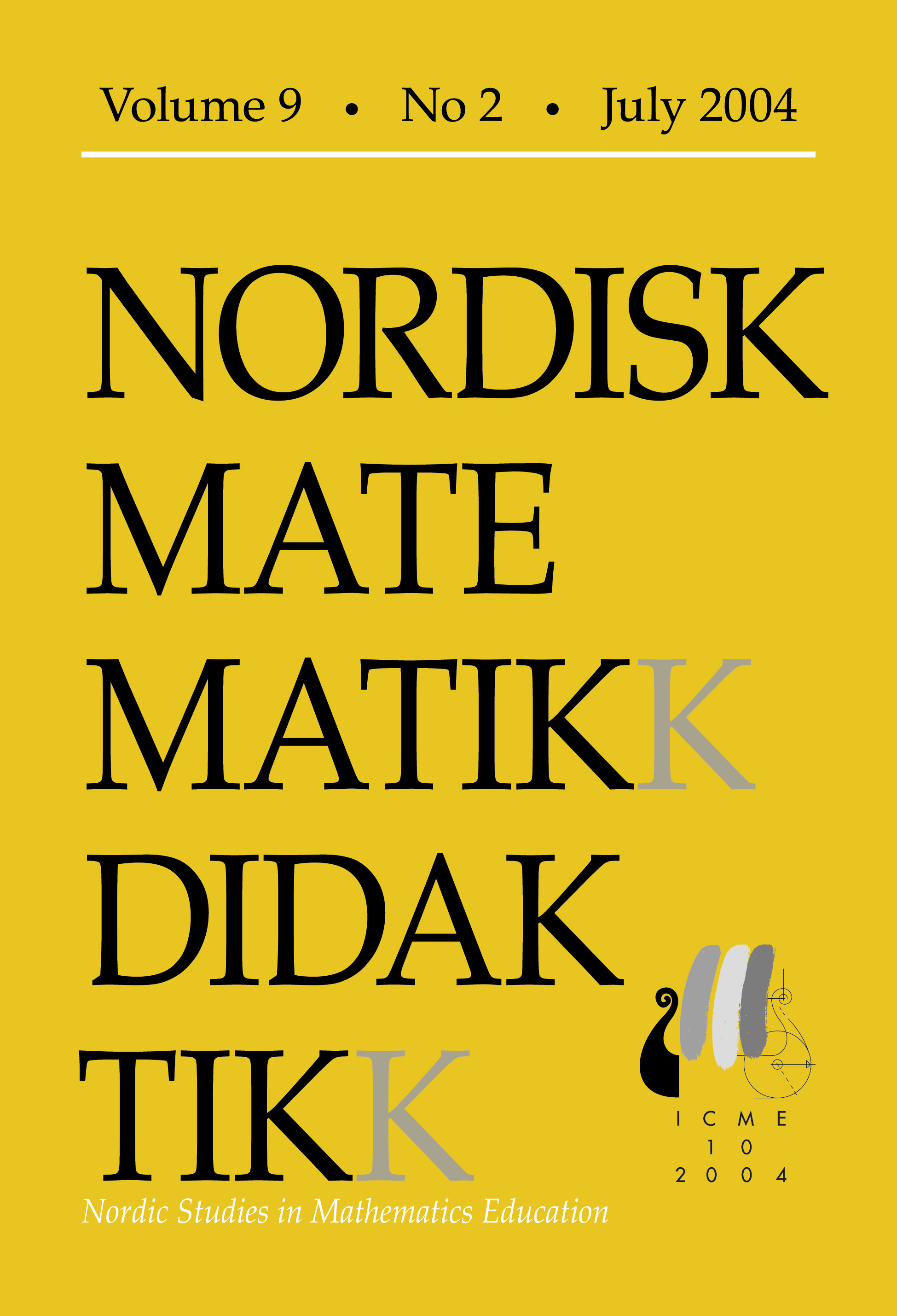Understanding constituted by understandings
DOI:
https://doi.org/10.7146/nomad.v9i2.147120Abstract
While focusing on the function of language as a fundamental tool in the learning process, this article relates to a text-theoretical approach connected to frameworks developed by M.M. Bakhtin (1981, 1998) and J. Lotman (1988), in particular to their shared view of language as gaining meaning in relation to other languages.
Learning is seen as developing text; it is seen as relational – as individual, social and genre-related. The empirical basis for this article emerges from a learning situation in which student teachers are searching for insight into concepts within the theory of functions. The article comprises different texts: the theoretical framework, the empirical text, and a child’s beadwork.
References
Bakhtin, M. M. (1981). The dialogic imagination: Four essays (C. Emerson & M. Holquist, Trans.). Austin: University of Texas Press. (Original work published 1975)
Bakhtin, M. M. (1998). Spørsmålet om talegenrane. Bergen: Adriane Forlag.
Dysthe, O. (1999). Dialogic perspectives on teaching and learning. In O. Dysthe (Ed.), The dialogical perspective and Bakhtin (Conference report). Program for Research on Learning and Instruction, Bergen University.
Goodchild, S. (2001). Students goal. Bergen: Caspar Forlag.
Johnsen Høines, M. (2002). Fleksible språkrom. Matematikklæring som tekstutvikling (Thesis, Dr Philos). Bergen University.
Kvale, S. (1996). Interviews. An introduction to qualitative research interviewing. London: Sage Publications, Inc.
Lotman, J. (1988). Text within a text. Soviet Psychology, 24(3), 33-37. https://doi.org/10.2753/RPO1061-0405260332
Mellin-Olsen, S. (1987). The politics of mathematics education. Dordrecht: Kluwer Academic Publishers.
Mellin-Olsen, S. (1993). Dialogue as a tool to handle various forms of knowledge. Contribution to Political Dimensions of Mathematics Education, PDME2 Conference, Johannesburg.
Nyrnes, A. (2002). Det didaktiske rommet. Didaktisk topologi i Moralske Tanker av Ludvig Holberg (Thesis, Dr. Art). Bergen University.
Pimm, D. (1987). Speaking mathematically. London: Routledge.
Renshaw, P. D. & Brown, A. J. (1999). Orchestrating different voices in student talk about infinity: Theoretical and empirical analyses. Brisbane: The University of Quensland, Graduate School of Education.
Säljö, R., Riesbeck, E., & Wyndham, J. (2002). Samtal, samarbete och samsyn: En studie av koordination av perspektiv i klassrumskommunikation. In O. Dysthe (Ed.), Dialog, samspell og læring. Oslo: Abstrakt Forlag.
Skemp, R. (1971). The psychology of learning mathematics. Harmondsworth: Penguin.
Time, S. (1989). Kunnskap og kommunikasjon. In S. Mellin-Olsen (Ed.), Om kunnskap. Bergen: Bergen Lærerhøgskole.
Wertsch, J. V. (1999). Vygotsky and Bakhtin on community. In O. Dysthe (Ed.), The dialogical perspective and Bakhtin (Conference Report). Program for Research on Learning and Instruction, Bergen University.
Downloads
Published
How to Cite
Issue
Section
License

This work is licensed under a Creative Commons Attribution-NonCommercial-ShareAlike 4.0 International License.



